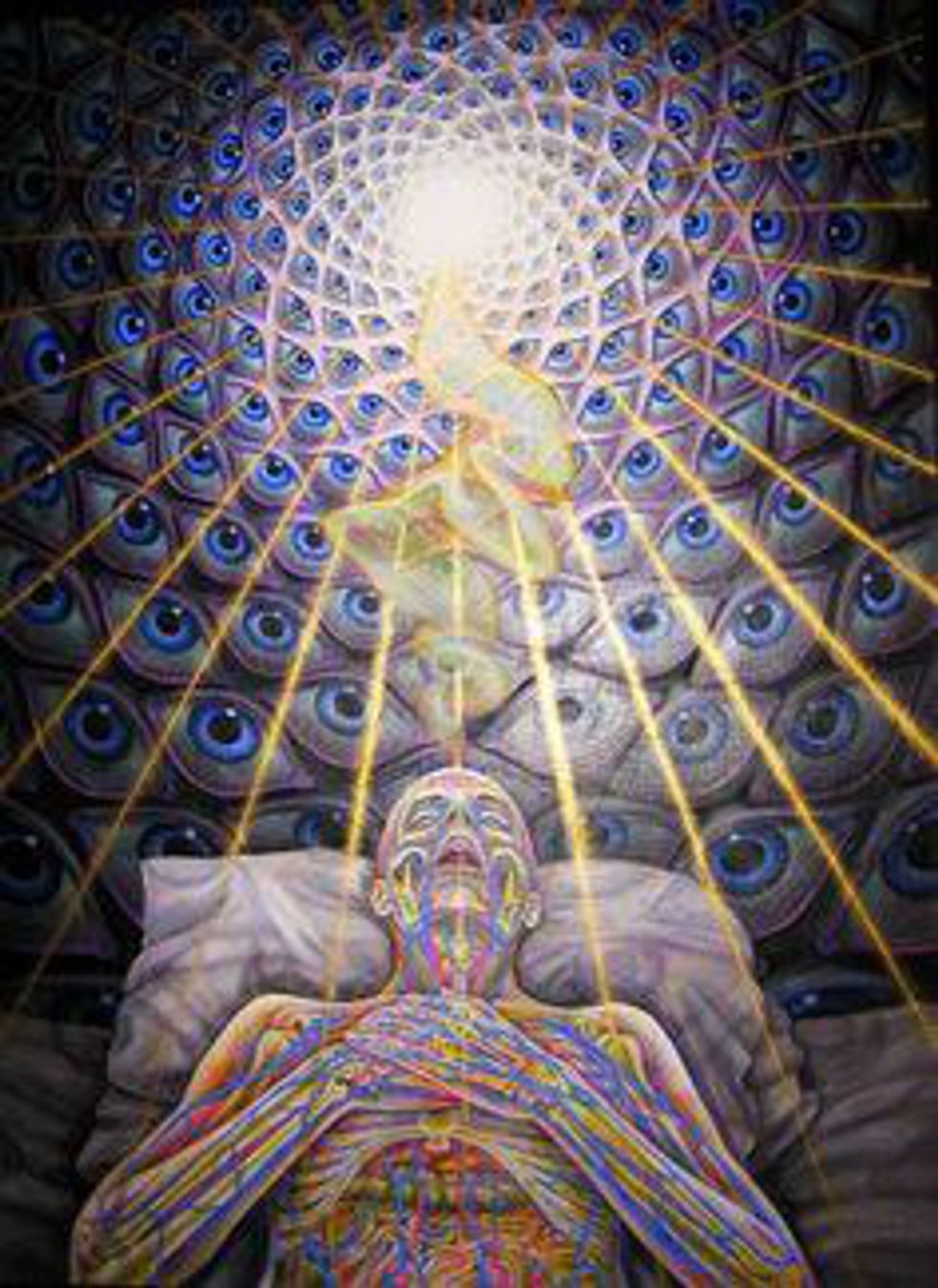Death is an experience that every human consciousness must undergo, but no one knows exactly what happens. There are religious beliefs of course, but even the devoutly religious can't claim to know exactly what lies ahead. This is where thanatology comes into play. The psychiatric side of this often overlooked science attempts to answer the question of what we experience at the time of deathh. Interestingly enough, people who have undergone extreme psychedelic experiences claim to know the answer to this question. With more research into these fields and substances, maybe humanity can finally know the answer to its oldest question: what happens after death?
Rick Strassman, in his piece Spirit Molecule, describes how at the moment of death, the pineal gland likely releases a large amount of DMT. Some say (based on anecdotal evidence) that because of hallucinogens’ effects of time dilation, suggestibility, and euphoric visions, the viewer may see exactly what they expected to see upon their death. In essence, if you believe in heaven, you’ll see heaven; If you’re worried you’ll be punished, you’ll see hell. Of course, the evidence supporting the “dump of DMT” at the time of death is controversial. It’s currently impossible to prove or disprove this claim, and no further study has been made as to its legitimacy. However, regardless of the cause, it is an undisputed fact that near death experiences (NDEs) often result in hallucination.
In Clifton D. Bryant’s "Handbook of Death and Dying" he puts forth that a buildup of carbon monoxide can produce similar effects to classical hallucinogens (peyote, psilocybin, and LSD). He compares Timothy Leary’s trip reports with Moody’s NDE model, and quotes Jack Provonsha, a specialist in ethics, and the study of hallucinogenic drugs comparing the two because “altered psycho-chemistry is often accompanied by heightened levels of suggestibility.” (143). This is to say, the brain is in very similar chemical imbalance at both the time of death, and while on a hallucinogenic substance. As a result, by studying this state, neuroscientists can uncover if not what happens after death, what the last thoughts are before it.
In continuation of the studies done in the 1960’s on psilocybin, in particular the infamously poorly conducted studies by Timothy Leary, Dr. Roland Griffiths created the Johns Hopkins Psilocybin Cancer Research Project. They have been doing some exciting research on the role of psilocybin and relief of death anxiety. They first released a paper positively correlating mystical-type, religious experiences with psilocybin, resulting in the scientific community viewing experiments in such taboo areas in entirely different ways.
One of their current projects is on how psychedelics can soothe death anxiety, but the experiment isn’t finished so there is nothing published on the subject yet. However, Dr. William Richards explains the study in this lecture, and some very optimistic papers have been published here regarding their other experiments with this drug. What they are attempting to do, is alleviate peoples fear of death by showing them exactly what will happen. When their patients are on heavy doses of psilocybin their brains are in a similar chemical state to how they will be when they die. This soothes anxiety because people report that there is nothing to be afraid of. They believe they've seen exactly what lies ahead.
With continued research, great leaps can be taken in the field of psychedelic therapy. These drugs have been shown to cure a great many ailments, and for the past fifty years the only thing preventing this research has been public ignorance. It is my hope that in the upcoming years more research can be conducted in this field to find the answers to some of mankind’s greatest questions. More research into this field could help find the answer to "the hard problem" (what makes us conscious), if there is a collective intelligence, if absolute morals exist, and of course, what happens after death. Thanatology has been around for hundreds of years, but it seems like now, science is on the cusp of combining the mystical and the logical. Arthur C. Clarke’s famous “3rd Law” states that, “Any sufficiently advanced technology is indistinguishable from magic.” Wouldn’t it be great to scientifically prove the soul, something mankind has always seen as magic?






















